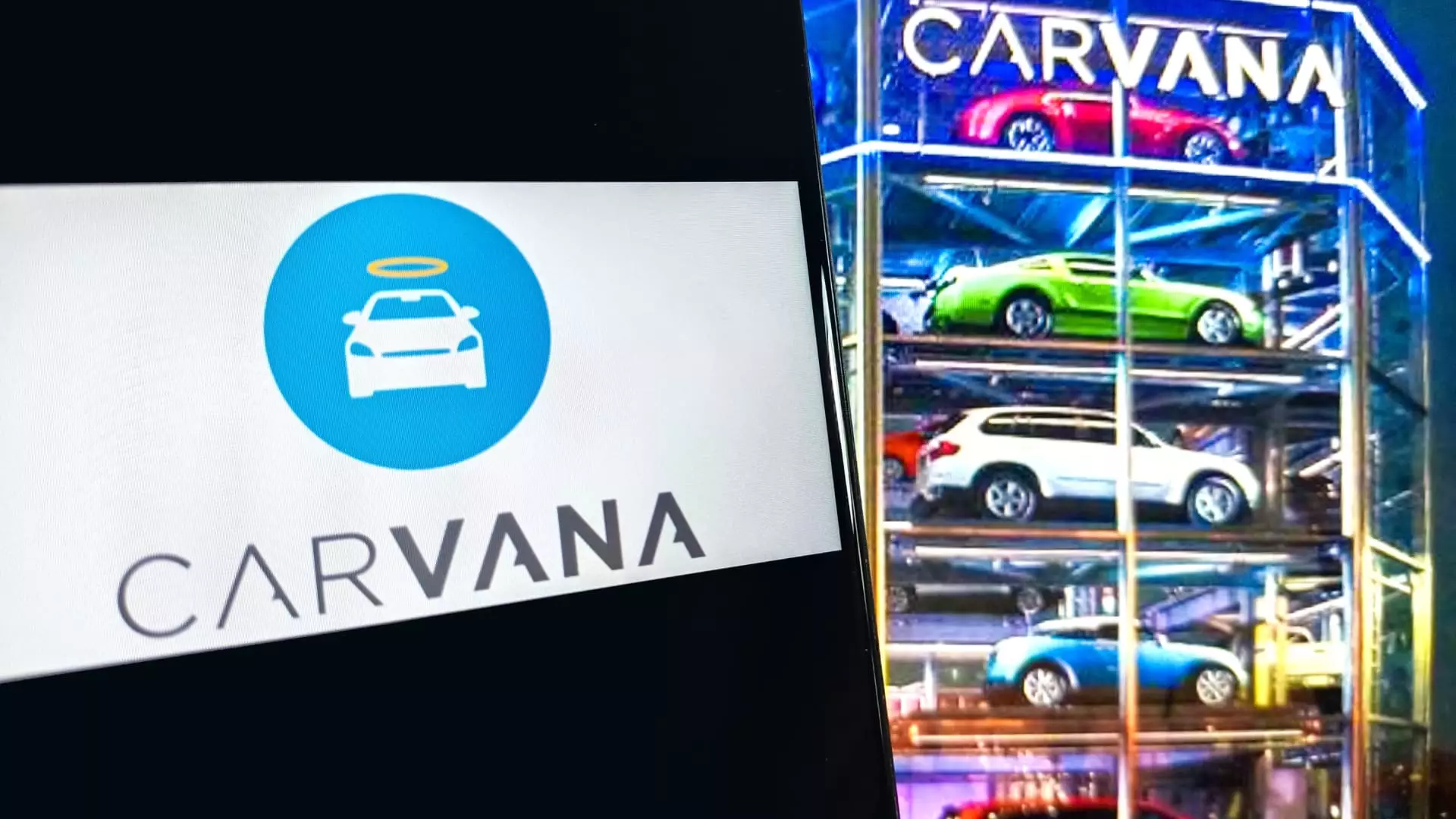Carvana, the prominent online used car retailer, is facing significant scrutiny following a recent report by Hindenburg Research, a firm known for its short-selling strategies. The report asserts that Carvana’s purported revival is illusory, suggesting that shaky lending practices and questionable accounting are at the core of the company’s operations. The credibility of Carvana’s financial improvements is overshadowed by Hindenburg’s claims, which paint a troubling picture of potential wrongdoing and financial mismanagement within the organization.
At the heart of the controversy is the association between Carvana’s CEO, Ernie Garcia III, and his father, Ernest Garcia II, who is the company’s largest shareholder. This familial connection raises red flags regarding conflict of interest and governance in the company. The Hindenburg report highlights a staggering $800 million in loan sales linked to an “undisclosed related party,” hinting at a web of financial entanglements designed to benefit insiders at the expense of larger shareholder interests. The suggestive title of the report, “Carvana: A Father-Son Accounting Grift For The Ages,” serves to underscore the relational dynamics that may be driving questionable business practices at Carvana.
One of the most alarming aspects of the Hindenburg report is its focus on accounting irregularities and relaxed underwriting standards, which allegedly underpin Carvana’s temporarily bolstered income figures. Such claims are worrisome, as they not only challenge the integrity of Carvana’s financial disclosures but also hint at a culture of opacity that could alienate investors. If the allegations hold any substance, Carvana’s attempts to present itself as a revitalized company could be mere smoke and mirrors, obscuring deeper systemic issues.
After a remarkable surge in its stock price—nearly 400% in 2023—Carvana’s shares dipped about 3% following the Hindenburg revelations. This decline suggests that market confidence is shaken; investors appear wary of the potential for instability in Carvana’s future. The situation is exacerbated by a history of legal challenges directed at the Garcia family’s management practices, which have previously drawn accusations of orchestrating a “pump-and-dump” scheme. Such past incidents contribute to a growing atmosphere of suspicion and distrust surrounding the company.
Compounding the issue is Carvana’s reliance on its relationship with DriveTime, the car dealership operation controlled by Ernie Garcia II. Carvana not only relies on DriveTime for loan servicing but also engages in complex financial transactions between the two entities, including vehicle sales and profit-sharing agreements. This interconnectedness beggars belief about the independence and viability of Carvana’s operations. Should the allegations from Hindenburg be substantiated, the implications could lead to significant regulatory repercussions, further complicating Carvana’s quest to stabilize its business.
Carvana’s recent performance and promising turnaround plans appear increasingly endangered by scrutiny and allegations of misconduct. As these events unfold, investors and stakeholders will be keeping a watchful eye, and the company may need to take decisive actions to restore faith in its governance and financial integrity.

Leave a Reply